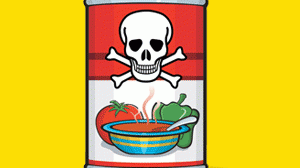
'Just when you thought it was safe to buy "BPA-free" products, manufacturers flood the marketplace with an alphabet soup of toxic bisphenols.
Consumer beware. New research published in the journal Chemosphere confirms that the hormone-disrupting chemical known as bisphenol A (BPA) is not the only bisphenol with DNA-damaging effects. In fact, the new cell study found that "...bisphenol AP, bisphenol M, or bisphenol P exerted genotoxic potentials that are greater than that of BPA."'
Read more...















